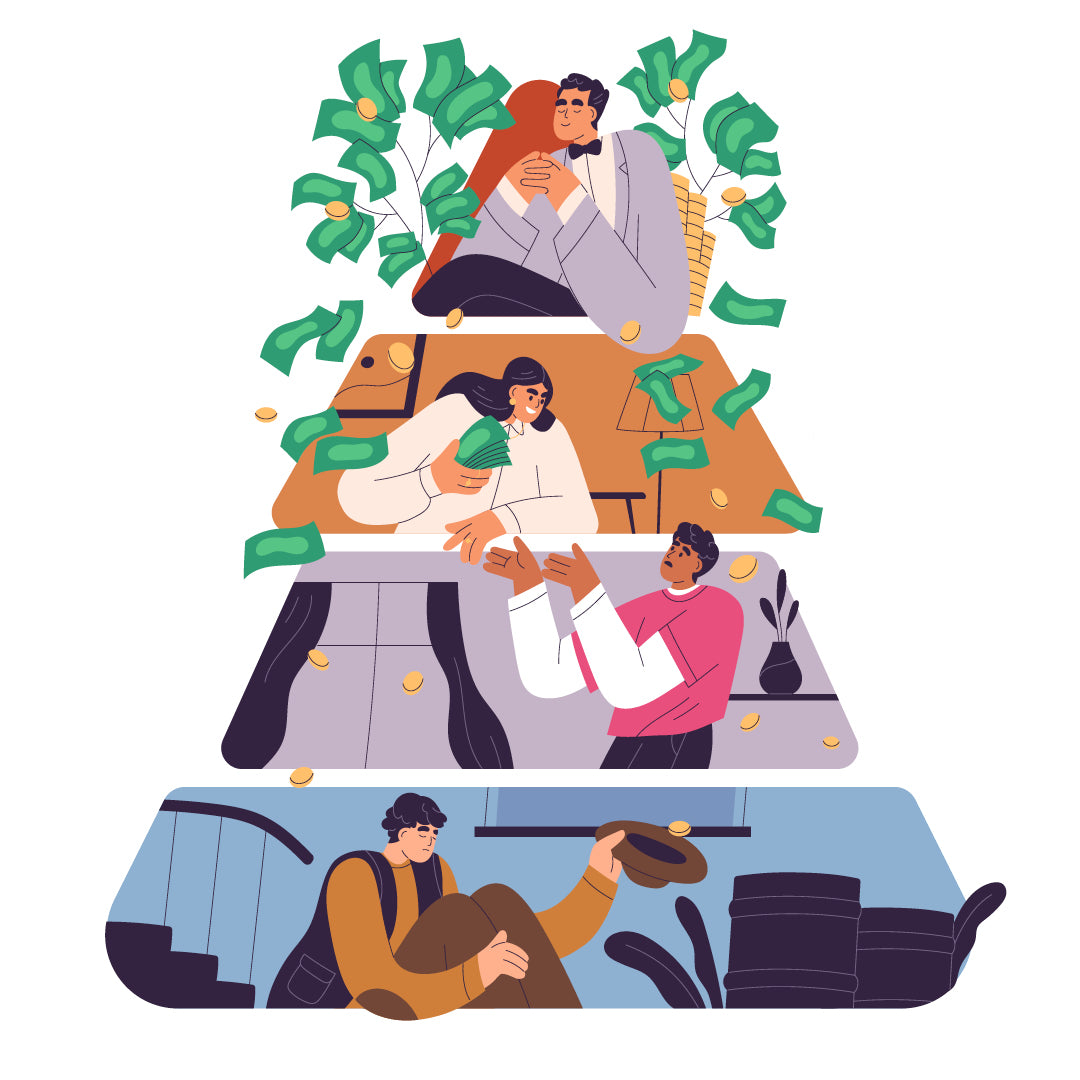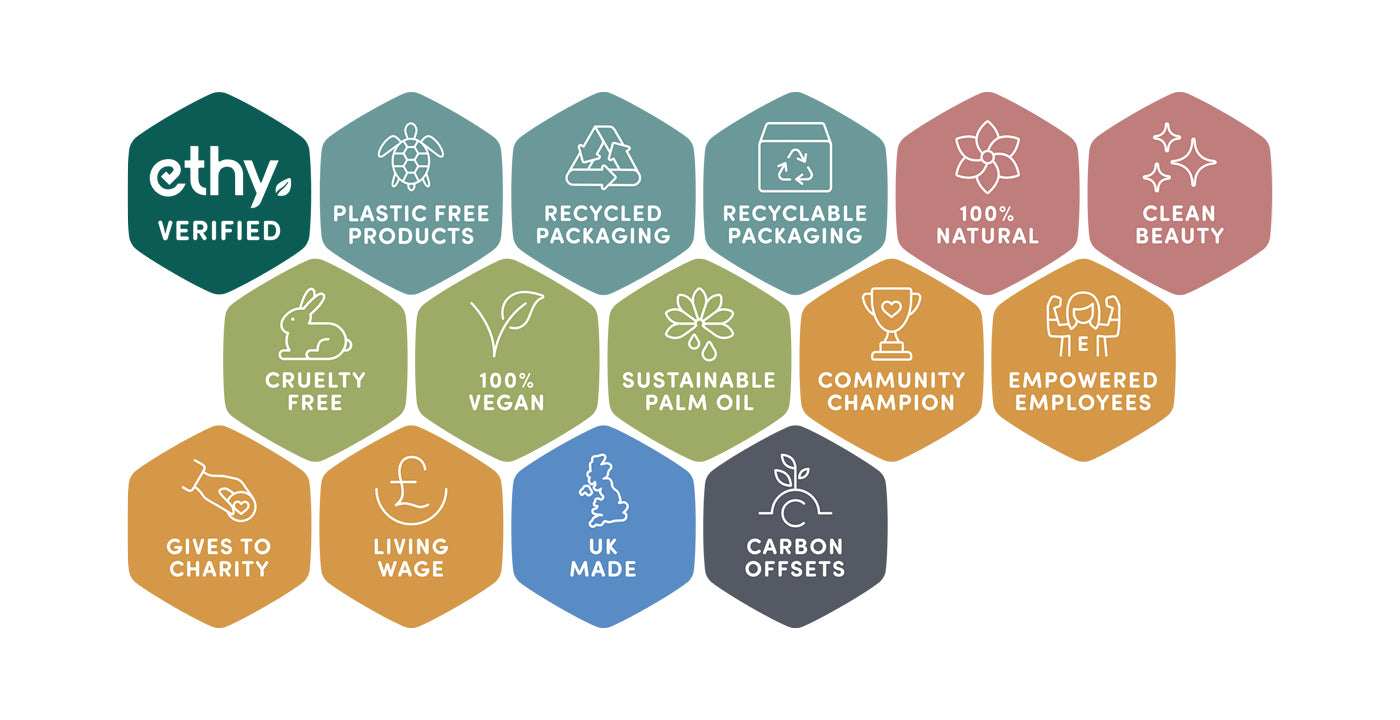
Walking the Sustainability Tightrope: Finding Harmony in Growth and Green Practices
Share
Throughout the history of human progress, economic growth has often been represented as our greatest measurement of success. A thriving economy usually represents a society that is improving, but it's important to remember that economic growth should never come at the cost of the environment and future generations. Striking a balance between economic progress, environmental care, and social well-being is the biggest challenge we currently face.
We are now standing at a critical crossroads in history, one where we have to address pressing issues such as climate change, resource depletion, and social inequality. We also live in an age where consumerism is at its peak, leading to masses of waste polluting our planet on an unfathomable level.
According to a report by World Bank, 1.3 billion tonnes of waste is generated in the world every year and this is expected to increase to 2.2 billion tonnes by 2025. It has been shown that higher income levels and increased urbanisation have led to more waste being generated because consumption levels rise with the increase in disposable incomes.
It's clear that we cannot continue down a path that threatens the well-being of our future generations and the planet, for the sake of short-term economic gains.
So is Economic Growth Bad?
Economic growth is certainly not a bad thing, in fact, it is a necessary part of how we live and thrive as human beings. When it’s implemented responsibly, it can even be a force for good. It can help improve living standards, create jobs, give us better health care and enable advances in technology. However, the dark side of unchecked growth often leads to environmental degradation, resource depletion, poverty and increased social divides.

To strike the balance between economic growth, environmental care, and social well-being, we must start to adopt a more holistic approach. We need to reimagine the way we consider progress to one that respects the finite resources on our planet, considers the welfare of all individuals and takes action to minimise environmental damage. This is the key to ensuring a better future for current and future generations. It's not about stopping growth but redefining it in a way that promotes harmony between humanity and the planet we call home.
So What Needs to Change to Foster a Sustainable Economy
Creating a world that combines sustainability with continual economic growth is undoubtedly a complex challenge, but it's one that demands our attention. To make progress, we must consider every aspect of ways we can a positive change:
1. Policy and Regulation:
Governments have the power to have significant influence in striking the right balance between sustainability and economic prosperity. They can implement a range of policies and regulations to encourage eco-friendly practices and sustainable growth.
2. Incentivising Green Practices:
Governments can also create incentives to encourage businesses and individuals to adopt environmentally responsible practices. This could help to foster a new attitude towards sustainable business practices and lead to many companies choosing greener options.
3. Carbon Emissions and Single-Use Plastics Taxes:
To discourage harmful practices, governments can impose taxes on carbon emissions and single-use plastics. These taxes would not only help offset environmental damage but also encourage businesses and consumers to make more environmentally conscious choices.
4. Moving Towards a Circular Economy:
A circular economy is a way that businesses and individuals can make a huge difference in creating a more sustainable world. If more of us lived by the simple concept of ‘reduce, recycle, re-use’ we would see our economy start to shift toward a greener one that creates less waste and promotes reusing what we already have.
5. Green Packaging Solutions:
Governments and consumers should support businesses that prioritise sustainable packaging solutions, ones that avoid the use of plastics and instead opt for recycled and recyclable materials.
6. Empowering the Youth:
Our young minds are the architects of the future. Providing them with knowledge about the consequences of our actions on the planet is essential. Sustainability education will cultivate a generation that cares deeply about the environment and understands the importance of sustainable practices.

Sustainability is not a buzzword or some distant goal but it is something that affects each and every one of us. At Friendly Soap, we take our responsibility seriously, which is why we handcraft all of our natural soap bars in the UK with 100% plant-based ingredients. We have never used plastic in any of our products or packaging and we are committed to constantly seeking new ways to minimise our impact on the environment.
We believe that if we work together we can build a future where living sustainably is second nature, where responsible resource management fuels economic growth, and where our actions today protect the well-being of generations to come. It's a path that promises a brighter, more sustainable future for all.













